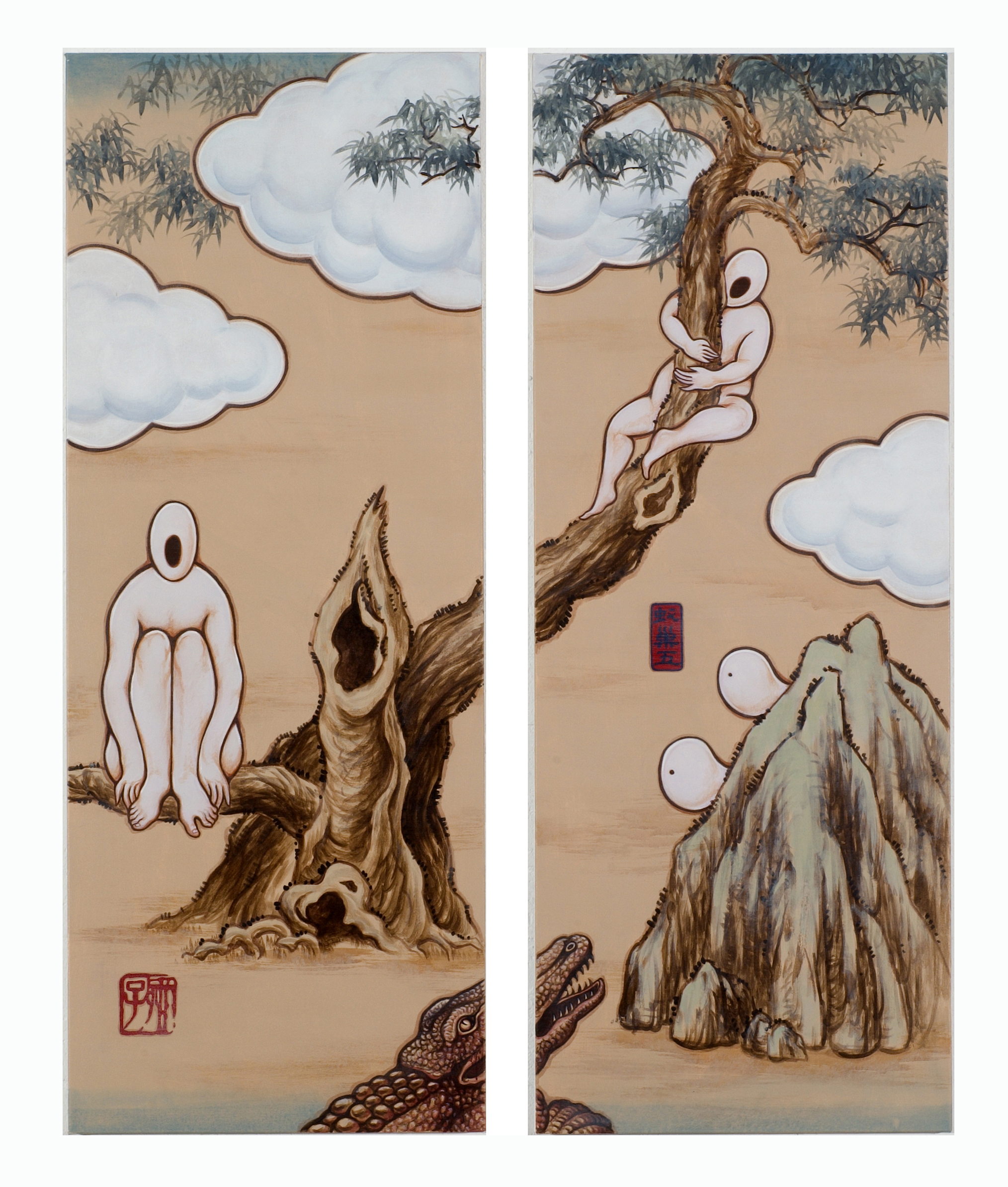Collecting the Territory
The Museum and Art Gallery of the Northern Territory (MAGNT) is the custodian of a significant collection of artworks reflecting our distinctive part of the world. MAGNT are hoping to grow this diverse collection with an important painting by internationally acclaimed artist Guan Wei.
 The outback at night can be a scary place full of creepy noises and strange cries, especially for someone who’s never been camping. For Chinese born artist Guan Wei, sleeping under the stars at Gunbalanya in Arnhem Land was an unnerving experience, but ultimately, he recalls a feeling of awe at the majestic landscape.
The outback at night can be a scary place full of creepy noises and strange cries, especially for someone who’s never been camping. For Chinese born artist Guan Wei, sleeping under the stars at Gunbalanya in Arnhem Land was an unnerving experience, but ultimately, he recalls a feeling of awe at the majestic landscape. Guan Wei moved to Australia in 1990 following the Tiananmen Square massacre in his hometown of Beijing and went on to become a major figure in the Australian art scene. In 2006 he was one of five artists of migrant background selected to take part in a Culture Trackers Artist Camp organised by Injalak Arts and Crafts and 24HR Art, now the Northern Centre for Contemporary Art.
In Gunbalanya he worked closely with Aboriginal artists, visiting rock art sites and learning about their culture and became fascinated by the parallels between Aboriginal culture and the Taoist philosophy of ancient China. The experience also sparked a new consideration of Australia’s colonial times and early European depictions of the desert as a “harsh, savage, cruel and deserted place.” Guan Wei’s experiences at the camp inspired a series of paintings he named A Mysterious Land.
MAGNT now has the opportunity to acquire one of the works from this significant series. The painting, ‘A Mysterious Land No.9’, evocatively captures the artist’s first encounter with the outback and his view of the similarities between Aboriginal culture and the Taoism. The painting has recognisable Territory features including a termite mound and a menacing looking crocodile, alongside which Guan Wei’s signature faceless men hide in the scrub, their gaping mouths expressing the terror they feel. A broken branch stump recollects a close encounter with a falling limb during the camp.
His first experience of remote Australia certainly had a powerful resonance, an experience common to many, and Guan Wei hopes that through his painting people might reacquaint themselves with nature, embrace nature, even return to nature.
Assistant Director Louise Tegart observed the importance of building the collection of artworks with major acquisitions of significant artists that have an NT focus.
“The MAGNT collection is part of the nationally distributed collection and belongs to the people of the Northern Territory. It is a record of artistic practice in the NT and is an insight into cultural responses to this diverse landscape,” she said.
Tegart says Guan Wei’s painting is an important example of this.
“Acquiring the work joins it with other works of the NT by significant artists. Growing the collection in turn evolves our understanding of what is truly unique about where we live, and fosters the endless creative possibilities for future generations.”
If you'd like to contribute to MAGNT’s ‘Collecting the Territory’ appeal, please visit the MAGNT website.
INFO magnt.net.au
Image: Guan Wei, ‘A Mysterious Land No. 9’, 2007, synthetic polymer paint on canvas; courtesy of the artist and ARC ONE Gallery, Melbourne
Thumbnail image: Guan Wei; courtesy of the artist and ARC ONE Gallery, Melbourne
Banner image: Guan Wei, ‘A Mysterious Land No. 9’ (detail), 2007, synthetic polymer paint on canvas; courtesy of the artist and ARC ONE Gallery, Melbourne
